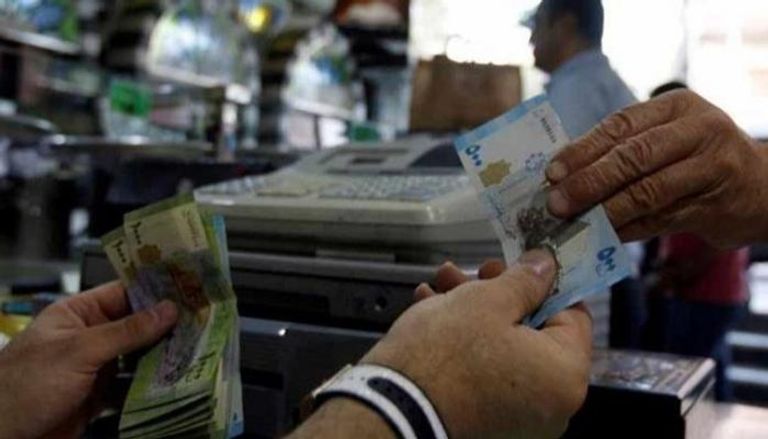Over the past two days, the dollar exchange rate in the Syrian local market has reached unprecedented levels in about 16 months. This aligns with earlier predictions that the elevated levels of global inflation would impact the volume of remittances entering Syria, coupled with the overall increase in the global dollar exchange rate.
As of the close of trading on Saturday evening, the “Damascus dollar” was being sold at prices ranging between 4,010 and 4,030 Syrian pounds. Notably, the official gold price experienced an unwarranted surge despite a decrease in the global gold price. Following Friday’s trading, the price of a gram of 21-karat gold rose by 3000 pounds, according to the official price issued by the Goldsmiths Association in Damascus, affiliated with the regime. Based on this pricing and a global ounce price of $1,705, the association calculated the dollar at 4,065 Syrian pounds. This unprecedented scenario suggests that the Goldsmiths Association estimates the real price of the dollar to be higher than that on the black market, potentially indicating that the black market exchange rate for the dollar may reach new unprecedented thresholds in the coming days. Consequently, this is expected to be reflected in the prices of commodities in local markets, especially imported goods and materials.
40 Cases Since June: Significant Increae in Suicide Rates in Northwestern Syria
It is noteworthy that the impact of remittances before Eid al-Adha quickly diminished as the dollar began to rise shortly after the holiday, particularly from Wednesday afternoon onward. This affirms that foreign remittances entering Syria prior to Eid al-Adha were significantly lower than those preceding the last Eid al-Fitr. Analysts had predicted this trend through loyal media outlets, citing the influence of inflation in countries with large Syrian communities, particularly Turkey.
Comparatively, Eid al-Fitr remittances (the Damascus dollar) decreased by approximately 100 Syrian pounds, maintaining a relatively strong exchange rate for at least three weeks after Eid until the Syrian pound started declining. In contrast, Eid al-Adha remittances, the Damascus dollar, decreased by only about 30 Syrian pounds, with their impact disappearing on the fifth day of Eid, coinciding with the resumption of transactions after the holiday.
Merchants in Damascus observed a decline in commercial activity before Eid al-Adha, estimating it to be 50 to 60% lower than the commercial movement before the previous Eid al-Fitr, according to reports in the pro-government newspaper “Al-Watan.”
Despite this, remittances before Eid al-Adha provided substantial relief for many Syrians, covering approximately one million Syrian pounds (equivalent to approximately $248) in Eid-related costs. A significant proportion of Syrians, ranging from a third to a maximum estimate of 70%, rely on foreign remittances to meet their basic needs.
However, if Eid passes “peacefully,” the anticipated decrease in average remittances due to inflation in expatriate countries and “Syrian” asylum will likely impact the living conditions of Syrians in the coming days. The average foreign remittances during holiday seasons typically range from $10 million to $12 million per day, dropping to about $6 million on normal days. This figure is expected to decrease further in the coming period based on indicators confirming the decrease in Eid al-Adha remittances compared to the usual average.
Considering that foreign remittances contribute to securing about 40% of foreign exchange for financing imports, as estimated by academics at the University of Damascus, an increase in demand for dollars within Syria is anticipated. This is likely to lead to further fluctuations in the exchange rate in the coming days, naturally impacting overall commodity prices.
This article was translated and edited by The Syrian Observer. The Syrian Observer has not verified the content of this story. Responsibility for the information and views set out in this article lies entirely with the author.


